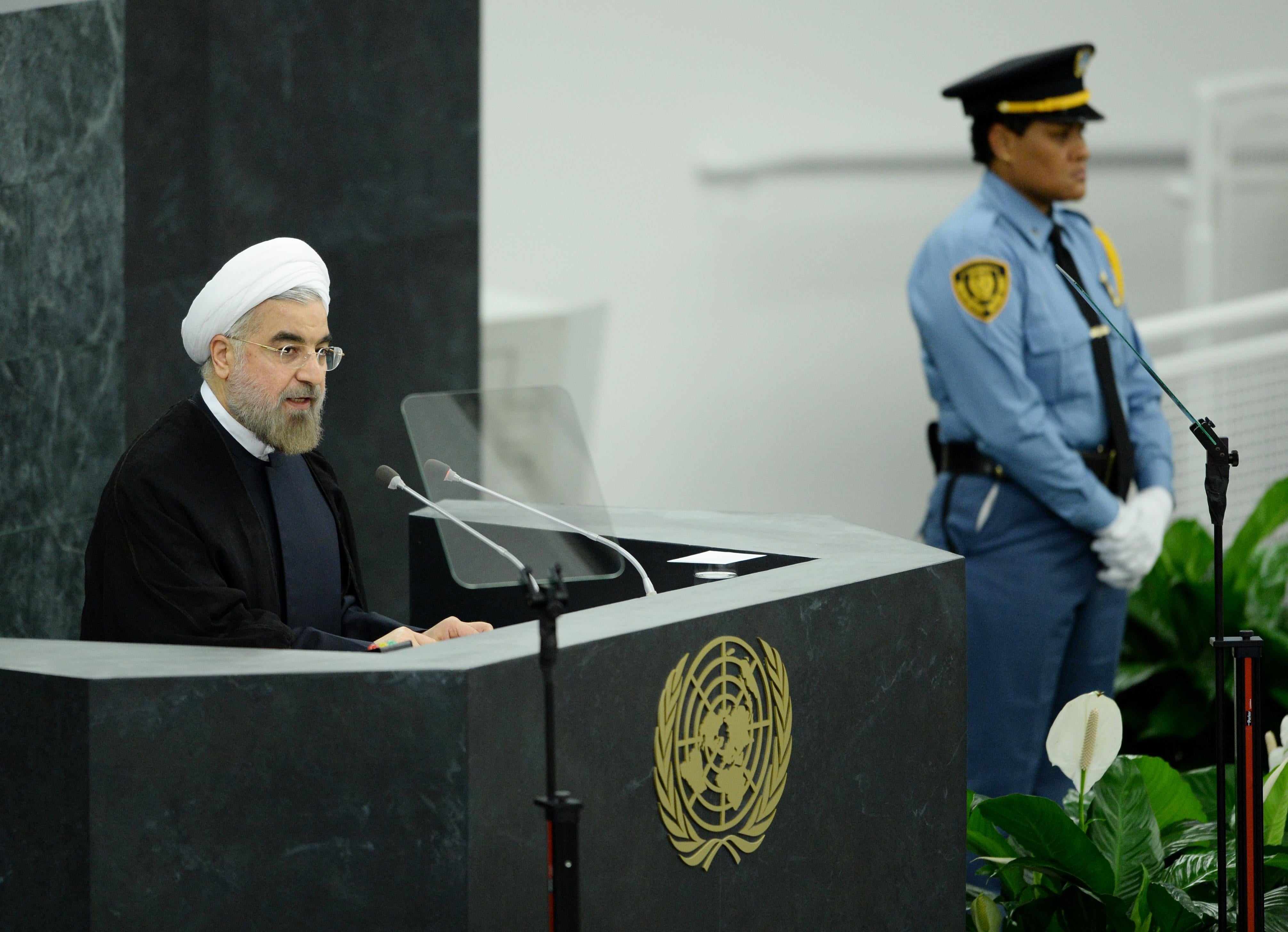Barack Obama and Hassan Rouhani may not yet see eye-to-eye on Iran’s nuclear program, but they do evidently like topepper their speeches to international audiences with the same clichés.
Obama told the General Assembly this morning, “let’s remember this is not a zero sum endeavor. We’re no longer in a cold war. There’s no great game to be won, nor does America have any interest in Syria beyond the well-being of its people.”
Rouhani also called for an “end of the era of zero-sum games,” in his just-concluded speech, which described his countryas the “anchor of stability in an ocean of regional instability.”
Rouhani’s speech was certainly a contrast from those of his predecessor. There were no elaborate 9/11 conspiracy theories and aside from a not-so-subtle reference to “war-mongering pressure groups” with the United States, didn’t indulge in the blatant anti-Semitism that often characterized Mahmoud Ahmadinejad’s addresses to the body. Whereas Ahmadinejad would often launch into fairly esoteric Shiite theology while speaking to the delegates, Rouhani sounded a bit more like a post-colonial studies grad student, peppering his speech with references to “hegemonic discourse” and “manifestations of structural violence.”
Rouhani condemned the “criminal assassination of Iranian nuclear scientists” as well as the the “use of drones in the name of combating terrorism” and declared that contrary to the U.S. position, “there is no military solution to Syrian crisis.”
“Those who harp on the so-called threat of Iran are either a threat to international peace and security themselves or promote such a threat,” he said.
But there seemed to be some room for discussion as well. Rouhani declared, as previous Iranian governments have, that the country’s nuclear program is peaceful and that “nuclear weapons and other weapons of mass destruction have no place in Iran’s defense doctrine.” But he also seemed to suggest the possibility additional international inspections, saying, “Our national interests make it imperative that we remove any and all reasonable concerns about our nuclear program,” the president said. It’s not yet clear yet how far Iran’s new government will actually go to remove those concerns, but there doesn’t seem to be any reason not to find out.
Rouhani may want to believe that Iran’s recent election was “a clear living example of the wise choice of hope, rationality and moderation,” but there was one telling moment of authoritarian disconnect in his speech. If he really expects a “consistent voice from Washington,” on this or any other issue, he evidently doesn’t understand much about how Washington works.
